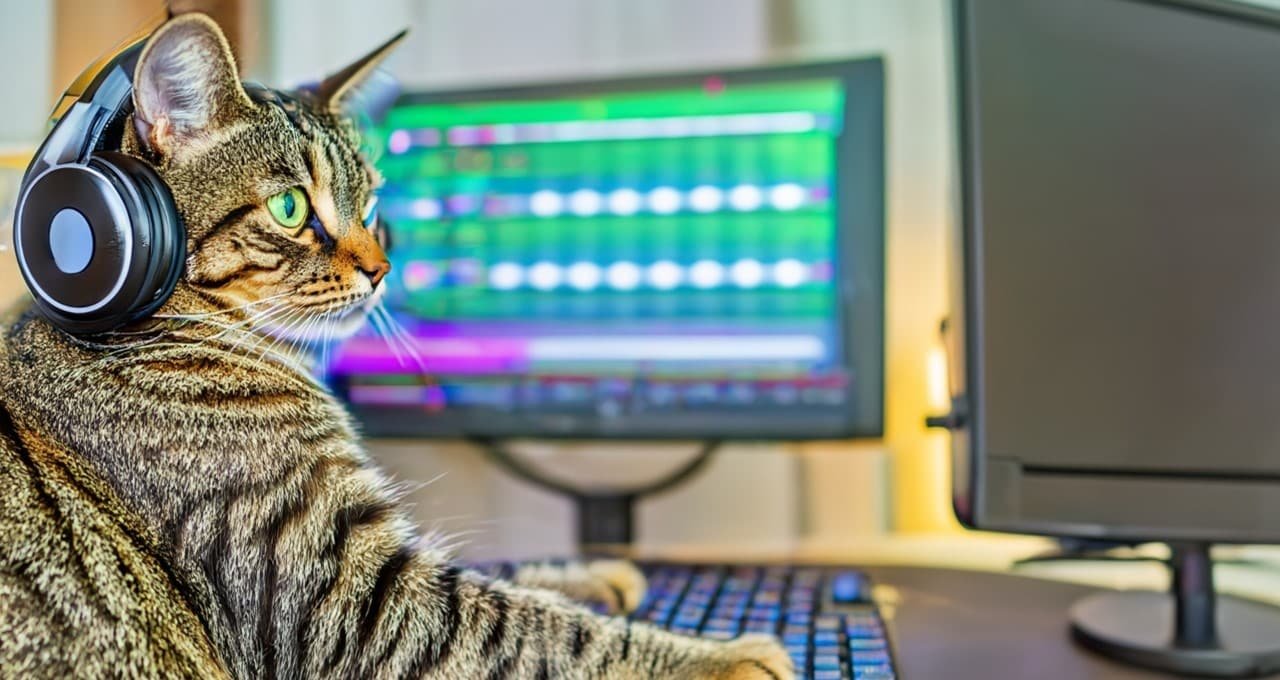Nvidia Fugatto: AI Tool Creating Unheard Sounds and Redefining Music Production
Image Source: Nvidia
Nvidia is pushing the boundaries of audio creation with its latest AI tool, Fugatto, promising to revolutionize the music and sound design industry.
[Read More: Why GPUs Are the Powerhouse of AI: NVIDIA's Game-Changing Role in Machine Learning]
Introducing Fugatto: Nvidia’s Innovative AI Music Editor
Nvidia has announced the launch of Fugatto, a cutting-edge AI-powered music editor designed to generate unique sounds and music compositions. Unlike existing tools, Fugatto claims the ability to create “sounds never heard before”, offering unprecedented creativity for musicians, sound designers, and content creators. For instance, the tool can craft a trumpet sound that mimics a meowing cat, showcasing its versatility and imaginative potential.
[Read More: The Curious Case of AI, Art, and... Cats?]
Unmatched Creativity Through Advanced Text and Audio Inputs
Fugatto distinguishes itself by allowing users to input both text and audio prompts, enabling the generation of entirely new auditory experiences. Demonstrations include prompts such as “Create a saxophone howling, barking then electronic music with dogs barking”, illustrating Fugatto’s capability to blend disparate sounds seamlessly. Additionally, the AI can produce intricate sound effects based on descriptive phrases like “Deep, rumbling bass pulses paired with intermittent, high-pitched digital chirps, like the sound of a massive sentient machine waking up”.
[Read More: YouTube Launches AI Music Remixes, Live-Stream Reminders, and Shorts Conversion Updates]
Transforming Voices and Enhancing Music Production
Beyond creating novel sounds, Fugatto offers sophisticated voice transformation features. Users can alter the accent or emotional tone of a voice, shifting it from angry to calm with ease. In music editing, Fugatto excels by isolating vocals, adding new instruments, and modifying melodies—for example, replacing a piano part with an opera singer. These capabilities provide artists with powerful tools to refine and reinvent their musical creations without extensive manual editing.
Extensive Training on Diverse Audio Datasets
Nvidia’s Fugatto is the product of extensive research and development, involving the compilation of a vast dataset comprising millions of audio samples. Among these, the company has utilized a library of sound effects from the BBC, among other sources. According to Nvidia, the team developed comprehensive instructions that broadened the model’s range of tasks, enhancing accuracy and enabling new functionalities without the need for additional data. This meticulous training process underpins Fugatto’s ability to generate high-quality, innovative sounds.
[Read More: UMG & KLAY Vision: Transforming AI Music with an Ethical, Artist-Friendly Model]
Standing Out in a Competitive AI Audio Landscape
While there are several AI audio tools available from companies like Stability AI, OpenAI, Google DeepMind, ElevenLabs, and Adobe, Fugatto sets itself apart by its claim to create entirely new and unprecedented sounds. Many existing AI startups in the audio space are grappling with copyright issues related to their music creation tools. Additionally, a recent report highlighted that Nvidia, along with other tech giants, has trained AI models using subtitles from thousands of YouTube videos, sparking discussions about data usage and intellectual property rights.
[Read More: Suno’s V4 AI Music Model Sets New Standards Amid Copyright Lawsuit and Industry Debate]
Future Availability and Industry Implications
As of now, Nvidia has not disclosed a specific release date for Fugatto, nor confirmed whether it will be accessible to the general public. The company’s focus remains on refining the tool’s capabilities and ensuring its robustness across various applications. If Fugatto becomes widely available, it could significantly impact the music and sound design industries, offering creators unprecedented flexibility and creative freedom.
[Read More: The Rise of AI-Generated Music: Revolutionizing Tunes or Threatening Musicians' Future?]
Source: The Verge










